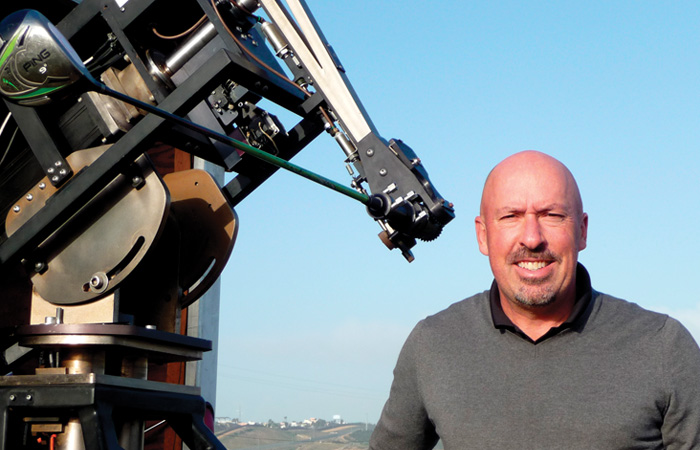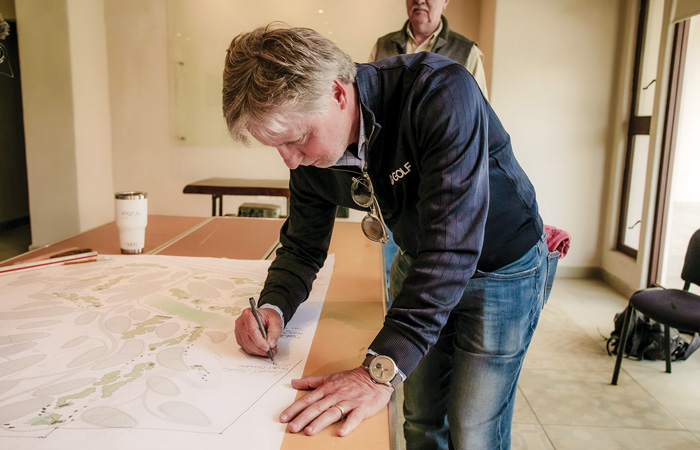Some say performance in golf requires technical skills and better positions in the swing. Others say better performance happens as a result of physical skills and a better fitness regimen. Still others say that the mental aspect of golf rules supreme and, unless a golfer can be relaxed and focused, performance will suffer.
One sports psychologist explains the subject well: “Athletes can have all of the mental stuff in the world, but if they’re not physically and technically capable of performing their sport, the mental side doesn’t matter.” However, he adds, “But it is an essential piece of the athletic success puzzle.” An Olympic-athlete-turned-mental-coach says the mental aspect of sports is the hub, while all the other factors involved are the spokes of a wheel.
So, it was very interesting to have the opportunity to speak with Dr. Joe Parent, who is an expert in performance psychology. What are his opinions on how the mental aspects of golf can actually aid performance? Dr. Parent is, after all, the person who helped both Vijay Singh and Christie Kerr gain No. 1 rankings in the world!

Joe Parent has lived and practiced his craft in the beautiful Ojai Valley of Southern California for many decades after having lived in different parts of the US and Canada in years gone by. He started playing golf at age 10 and, despite never having had golf lessons, he moved to a single-digit handicap after studying the mental game.
Following the early success in his own golf through the use of mental techniques, Dr. Parent went on to receive an undergraduate degree in psychology from Cornell University and a Ph.D. from the University of Colorado in social psychology and personality theory. Completely fascinated with controlling the mind to improve performance, he became a student of the Tibetan meditation master, Chögyam Trungpa, and since has both practiced, and taught, Mindful Awareness, starting in the 1970s.
“I became a Buddhist (in the Tibetan tradition, with a little study of Zen) in 1972. One of my meditation teachers took up golf shortly after that, and we played often. The talks about meditation and golf led to my sharing that with others as an avocation. In 1997 I started as a mental game coach professionally.”
Buddhism is a religion, established by the Indian prince Siddhartha Gautama, who became known as the Buddha or “enlightened one.” His main teaching was that we can all awaken and essentially, we are all buddhas. As Buddhism spread all across Asia, it evolved into Ch’an, meaning meditation, in China, and became known as Zen in Japan. Thus, the practice of Zen can be considered to be the meditative way of practicing Buddhism. Out of the realization of self “flows a natural compassion and wisdom, a peaceful and intuitively appropriate response toward whatever circumstances may arise,” according to the Zen Studies Society.
Thus, it was that Dr. Parent was able to apply a combination of the modern Western psychology of his academic background and the venerable Eastern wisdom learned from a Tibetan master, to help golfers and other sports athletes.
In his words, he has worked mainly with golfers, but “Learned that the issues are surprisingly similar at all levels. Worry about results is the cause of the most interference with a free swing.”
So how does his East-meets-West philosophy compare with the teachings of other golf psychologists? “What I would say is much information on the mental game will tell you, ‘Stay in the present, keep focused, clear your mind, don’t get down on yourself.’ What makes my Zen Golf methods so special is that they teach you how to do those things, with time-tested mindfulness and awareness techniques and exercises for working with thoughts and emotions, for settling and centering your body and mind, for changing unhelpful habits.”While all this may sound slightly theoretical, on the website DrJoeParent.com is the video, audio and digital document of a mindfulness session, and, among other free resources, Dr. Parent offers several free guided mindfulness sessions every month.

“The mindful aspect of the practice is being precisely focused on what your body and mind are doing in the here and now, whether you are sitting still or performing an activity. The awareness aspect of the practice is being tuned in to the environment in which your thoughts and perceptions come and go, moment by moment.”
The practice exhorts the practitioner to get into suitable posture and then get grounded in three stages – relaxing the body, moving the mind to the core, and merging with the earth through deep, rhythmic breathing.
In general, a mindfulness practice helps you to pay better attention to what you are doing, maintain that attention for longer periods of time, notice more quickly when attention wanders, and return more sharply to the here and now. This is obviously an amazing technique for a golfer to incorporate, because it helps the person “stay in the present.” In fact, in Dr. Parent’s book A Walk in the Wood: Meditations on Mindfulness with a bear named Pooh, the beloved bear Winnie the Pooh says it as simply and guilelessly as only Pooh can,
“Come back from the future or past
To what you were just doing last
That’s the way I know how
To be Pooh here and now.”
No wonder then, that his website has testimonials by everyone from Jack and Barbara Nicklaus to Christie Kerr to several regular golfers, too.
“We admire Dr. Joe and appreciate the lessons he has taught us in golf and life through his friendship and writings. He conveys his wisdom to all in a simple and beautiful manner.”
— Jack & Barbara Nicklaus
“Losing 65 pounds gave me the confidence to succeed. I’ve kept the weight off and kept winning tournaments. Dr. Parent is a master teacher of mindfulness, and THE BEST DIET BOOK EVER will help you to lose weight, feel more confident, and achieve your goals.”
— Cristie Kerr, U.S. Open & LPGA Champion, No. 1 in 2010 Rolex World Ranking
It is, thus, well worth any golfer’s time to check out Joe Parent’s mindful awareness, in order to get a firm grip on the mental aspect of golf.
Dr. Kiran Kanwar, golf science consultant, is the developer of The Minimalist Golf Swing System – 100% scientific, simple, and specific. She has M.S. in sports science and nutrition, a Ph.D. in biomechanics, an anatomy a degree in Kinesiology and is an LPGA Master Professional. Visit her websites www.YourGolfGuru.com and www.mgs.golf .